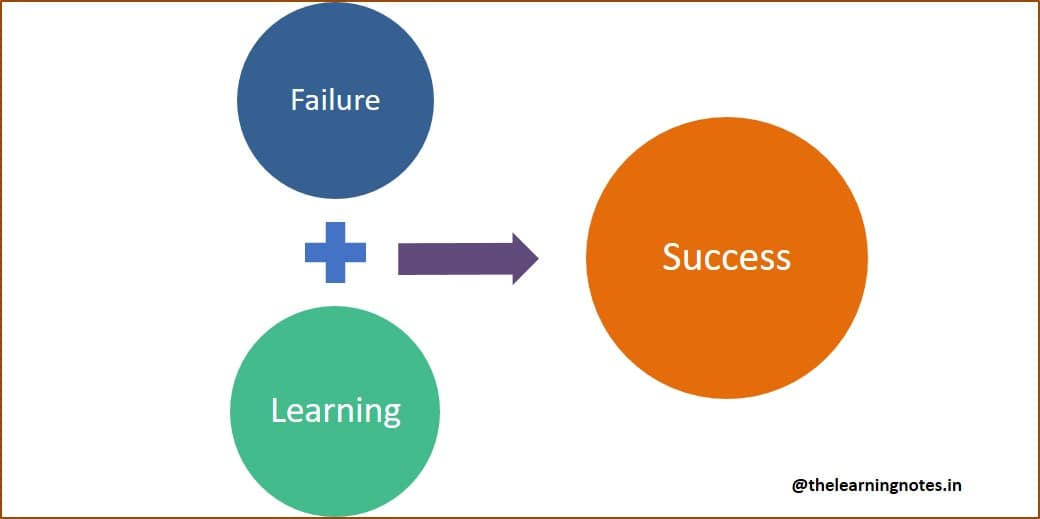
People see success as positive and failure as a negative. We do not learn to walk without falling. We learn from failures. Failing once, twice, or even hundreds of times doesn’t mean we have hit the end of the road – it means we have taken another turn, and we are one step closer to success.
To grow in life, failure is needed. Failure shows people how they could be better and how they could improve to innovate better. Failure makes a person rethink, reconsider and drives the person to come up with new strategies to achieve success.
We all fail some time or other. How soon, or never, individuals (or groups or companies) get back on track, depends on accepting failure, processing the same for what went wrong and acting accordingly. We learn from failures and move on.
Failure and fault are virtually inseparable in most households, organizations, and cultures. As children we learn that admitting failure would mean taking the blame. Moreover, parents sometimes also have this tendency to be over protective and blame everyone but their child for failure. Such children never learn to own their part in failures. The same is with organizations and cultures. If the first instinct is denial then such organizations also do not evolve and innovate.
Here are the top 5 reasons for why people/individuals might fail –
- Lack of ability: when an individual does not have the skills, conditions, or training as is required. Lack of skill despite good education may lead to failure.
- Lack of personal goals in life : when an individual has a drifting nature and lacks the ability to focus on what’s important.
- Indifference to avail opportunities: When an individual lacks the self-discipline to create or take advantage of opportunities for self-advancements.
- Wasting Time : When an individual chooses to place greater importance on other people’s unproductive affairs and not on their own work.
- Lack of persistence, tenacity, dedication : when an individual carries a negative mental attitude and assumes that everything they would do will be a failure.
Failure is always relative
Always remember that Failure is relative i.e. the definition and degree of failure varies from person to person. Keep a balanced attitude, learn from failure. Analyze the cause of failure and then determine response to failure. Never overdo or under-do a response.
Accept your failures
Accept failures with humbleness and humility. If a failure has occurred, there has been a mistake. Accept it and try to find a way out of it by taking responsibility for your part.
Reset yourself
Learn from every failure. It teaches you something every time. Receive it in the right spirit and make genuine single minded efforts in specific and integrated manner. Focus on visualizing a new future and how to get to it.
Be optimistic
It is important to stay optimistic through failures. Your optimism will help you analyze the cause of a failure and how to overcome it.
Viewing failures through a positive lens can teach people to evolve and innovate. All mistakes have important lessons to teach us and we learn from failures. Examine them with patience and curiosity.
There can be no success without failure. One should welcome failure as an opportunity to learn. The investment for learning from failure may, sometimes, seem too high but, in the long run, it will prove to be a worthwhile price to pay.
I Completely agree with the facts put forward. Dealing with primary and secondary classes , I have witnessed the reluctance of children to own their failures. The onus for teaching this readiness to accept failure as a part of the learning process lies with us as teachers and parents.
A complete personality can only develop if we equip our children to not only admit that they are wrong, but also have the courage to right their wrongs.